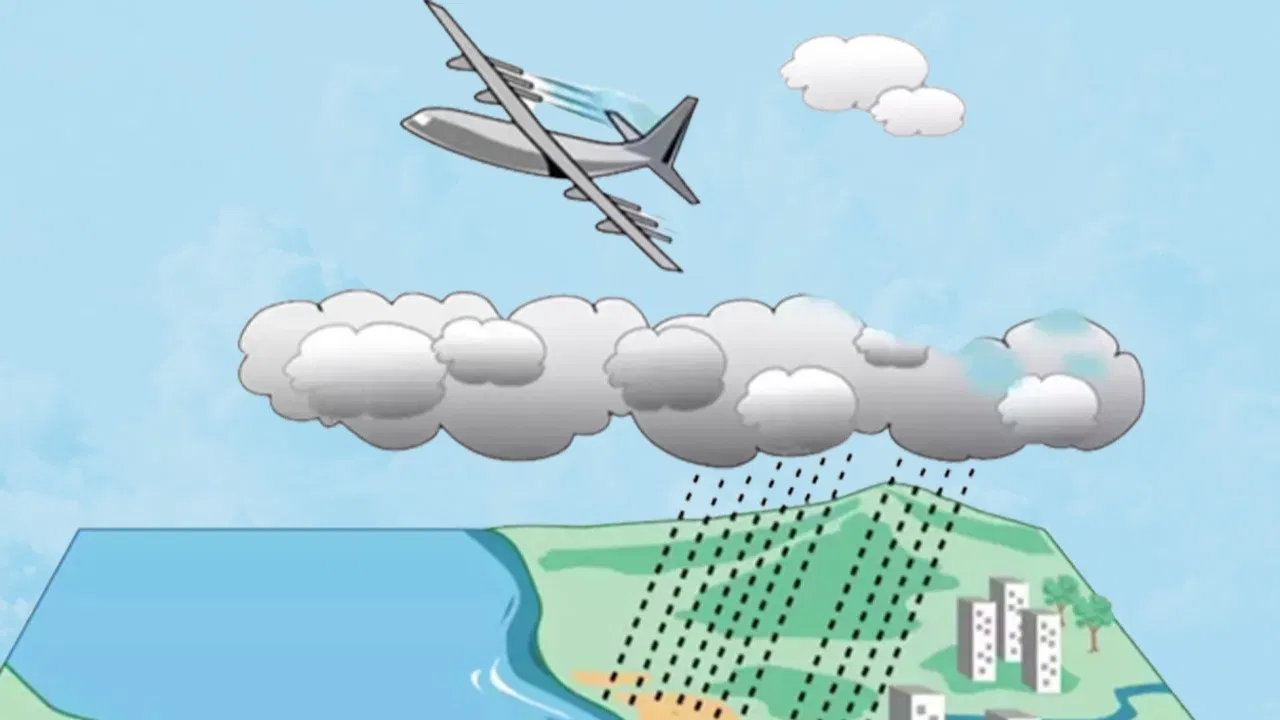Cloud Seeding
Artificial Rain
1. Concept: Artificial rain, also known as cloud seeding, is a technique used to enhance rainfall in areas experiencing water scarcity or drought. It involves the introduction of certain substances into the atmosphere to promote cloud formation and precipitation. 2. Methods: There are various methods of artificial rain, but the most common one involves the use of silver iodide or other hygroscopic materials. These substances are dispersed into the clouds either by ground-based generators or by aircraft, where they act as ice nuclei, stimulating the formation of ice crystals within the clouds. 3. Purpose: The main purpose of artificial rain is to increase precipitation in arid regions or during times of drought. It can help replenish water supplies, support agricultural activities, and mitigate the effects of water scarcity on ecosystems and human populations. 4. Effectiveness: The effectiveness of artificial rain can vary depending on several factors, including atmospheric conditions, cloud type, and the amount and distribution of cloud seeding agents. While some studies have shown positive results in terms of increased rainfall, others have found limited or inconclusive evidence of its effectiveness. 5. Environmental considerations: Artificial rain has raised concerns regarding its potential environmental impact. Critics argue that introducing foreign substances into the atmosphere may have unintended consequences, such as altering natural precipitation patterns, affecting ecosystems, or causing pollution.
6. Dubai's cloud seeding program: Dubai is one of the cities that has implemented cloud seeding as a means to increase rainfall. The city faces water scarcity due to its arid climate, and cloud seeding is seen as a way to supplement its water resources. The Dubai Electricity and Water Authority (DEWA) operates a cloud seeding program that aims to enhance rainfall in the region. 7. Cloud seeding technology: Dubai uses advanced cloud seeding technology, including drones equipped with special sensors that can detect optimal cloud conditions for seeding. These drones release flares containing silver iodide into the clouds, promoting the formation of raindrops. 8. Results and controversies: The effectiveness of cloud seeding in Dubai has been a subject of debate. While some reports suggest that the program has resulted in increased rainfall, others argue that the effects are minimal and that the investment in cloud seeding could be better utilized in other water conservation and management strategies. It is important to note that the effectiveness and ethical implications of artificial rain are still subjects of ongoing research and debate. It is considered a supplementary measure and should not be solely relied upon for addressing long-term water scarcity issues.
Founder Of The Seventh-day Adventist Church
Ellen G. White
White's most famous book is "The Great Controversy," which was first published in 1858 under the title "Spiritual Gifts." The book presents a comprehensive overview of Christian history from the fall of Lucifer in heaven to the end of time and the final victory of God's people. It explores themes such as the conflict between good and evil, the role of prophecy, and the ultimate triumph of righteousness. "The Great Controversy" emp...


